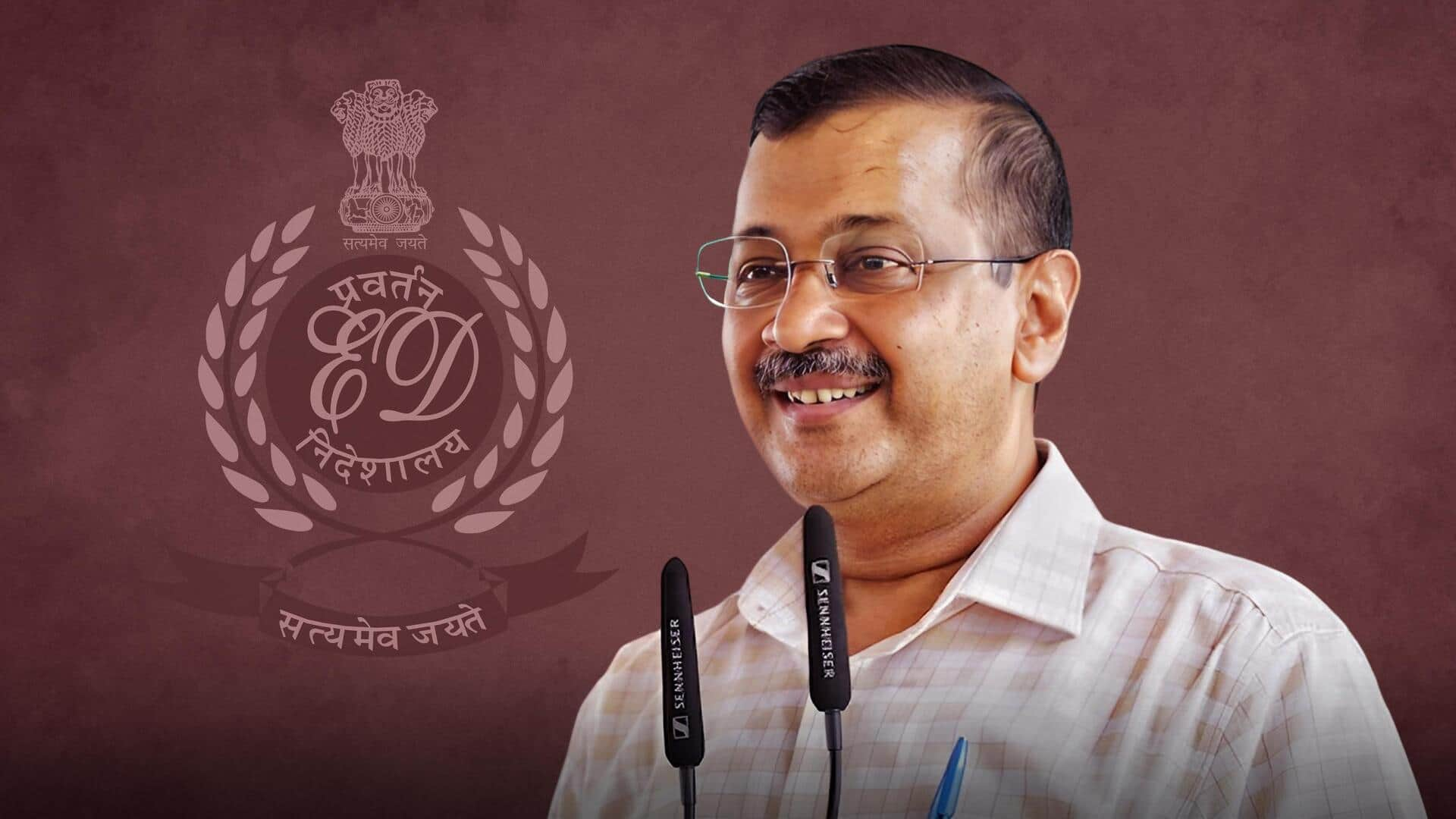
Delhi excise policy: Arvind Kejriwal moves sessions court against summons
What's the story
Delhi Chief Minister Arvind Kejriwal on Thursday filed a petition in the Sessions Court challenging the summons issued to him by a magisterial court.
The summons from the additional chief metropolitan magistrate is related to complaints filed by the Enforcement Directorate (ED).
These complaints pertain to non-compliance with previous summonses issued by the ED for an investigation into the now-revoked Delhi excise policy scam case.
Context
Why does this story matter?
On March 4, Kejriwal skipped the ED's eighth summons filed under the 2002 Prevention of Money Laundering Act (PMLA).
Alleging non-compliance to the summons issued, the central agency filed two criminal complaints against him in Rouse Avenue Court.
Kejriwal informed ED that he was ready for questioning via video conferencing on March 12.
While the court had exempted him at first, after ED's second complaint on March 6, it ordered Kejriwal to appear before the agency physically on March 16.
Statement
Kejriwal accuses BJP of targeting opposition parties through ED
Last week, Kejriwal claimed the ED summonses were "illegal" and accused the Bharatiya Janata Party-led Centre of targeting opposition parties.
Kejriwal alleged he was being coerced into joining the BJP. "Those who refuse to join BJP are sent to jail. They've sent me so many notices as if I am the biggest terrorist in India," he added.
The ED, however, has said it wants to record Kejriwal's statements on issues such as excise policy formulation, meetings held, and bribery allegations.
ED probe
What are the ED's allegations
In a charge sheet filed on December 2, ED alleged that AAP used Rs. 45 crore in kickbacks from the policy for its Goa assembly elections campaign in 2022.
As of now, the ED has arrested senior AAP leaders Manish Sisodia and Sanjay Singh, party communications head Vijay Nair, and several liquor business owners.
Kejriwal's name has appeared in the agency's charge sheets.
However, the Delhi CM has not been formally charged in the alleged scam case.
2021
What is the Delhi excise policy case
In November 2021, the Kejriwal-led Delhi government implemented the revamped 2021-22 liquor excise policy.
Less than a year later, it decided to scrap the policy amid extensive corruption allegations.
Central probe agencies claimed that wholesaler profit margins were artificially boosted from 5% to 12%.
They also alleged that the regulation promoted cartelization and benefited those ineligible for liquor licenses for economic gain.